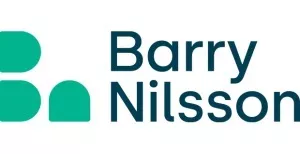Disclosure of documents in health care claims.
Late last year the Queensland Supreme Court gave a wide interpretation to a persons obligation to disclose information and documentation under section 9A(8) of the Personal Injuries Proceedings Act 2002 (PIPA). That section provides:-
(8) A person to whom an initial notice is given must, within one month after receiving the initial notice, give the claimant:-
(a) A written response advising whether any documents are held in relation to the medical services mentioned in the notice; and
(b) Copies of all documents held by the person about the medical services.
The Court held that this obligation extended to the disclosure
of any reports, witness statements and file notes created during
any investigation into a medical incident, unless they are purely
statements of opinion.
Allen v State of Queensland [2010] QSC 442 (26 November 2010)
The Facts
Ethan Allen was 16 months old when he suffered severe brain damage following a heart operation at the Prince Charles Hospital on 23 December 2003.
Two weeks after the operation the Hospital engaged solicitors who obtained from Ethan's treating doctors "privileged and confidential" written statements. The purpose of these statements was to record the events of and leading up to the operation on the basis that a claim might be made on behalf of Ethan down the track.
Ethan's father, Daniel Allen, instructed solicitors in May 2010. A claim for damages followed. The solicitors were aware that the Hospital had conducted an investigation in 2004 and that statements had been provided.
Section 9A(9) PIPA requires a claimant to provide a written report from a medical specialist "competent to assess the medical incident alleged to have given rise to the personal injury" and commenting on:-
- The alleged failure to meet an appropriate standard of care in providing medical services.
- The reasons justifying the opinion.
- That as a result of the failure the claimant has suffered
personal injury.
Ethan's lawyers said that before they could obtain such a report from a medical specialist they needed, amongst other things, the statements taken by the hospital's lawyers back in 2004. The hospital claimed that the statements were protected by legal professional privilege as they were created for the dominant purpose of being used in subsequent anticipated legal proceedings.
The Decision of the Queensland Supreme Court
1. The Court held that in order for the Hospital to claim litigation privilege over the statements, there must have been a real prospect at the time the statements were taken that the Hospital would be sued. This possibility must be determined objectively – it was not enough for the Hospital to subjectively state that it anticipated litigation merely because a patient had suffered a significant injury while under their care.
2. The Court accepted that the statements had come into existence for the dominant purpose of anticipated litigation, as at the time the Hospital thought the incident involved a "medico-legal risk". The fact that the Hospital engaged lawyers to obtain the doctors' statements was further evidence that it anticipated future litigation. There was no other purpose for obtaining the statements.
3. The Court then looked at section 30(1) and (2) of PIPA, which provide that:-
"30 Non disclosure of particular material
(1) A party is not obliged to disclose information or documentary
material under division 1 or this division if the information or
documentary material is protected by legal professional
privilege.
(2) However, investigative reports, medical reports and reports
relevant to the claimant's rehabilitation must be disclosed
even though otherwise protected by legal professional privilege but
they may be disclosed with the omission of passages consisting only
of statements of opinion.
(3) . . ."
4. The Court held that section 30(2) must be interpreted in light of the disclosure obligation imposed by section 9A(8)(b) (see above). The Court held that in order to achieve PIPA's overarching purpose of resolving claims quickly and on a fully informed basis, the term "investigative reports" should be given a wide interpretation:-
"Such an interpretation was also consistent with the intention in PIPA of having the claimant's expert provide a fully informed opinion at an early stage on whether a claim had merit."
5. The Court held that the term "investigative reports" not only includes official reports of investigators or loss adjusters, but also file notes and witness statements that are made in the course of a hospital's investigation into a medical incident.
6. Accordingly, the Court held that the statements taken from doctors in 2004 fell within the meaning of "investigative reports", and therefore had to be disclosed, with the omission of passages that were solely statements of opinion.
Implications
- Hospitals, health practitioners and their lawyers need to think twice before taking a statement(s) following a medical event or event arising out of the provision of medical services.
- It would seem that any statements taken from persons who had a direct involvement in the provision of the medical services are subject to disclosure.
- If there is a real prospect that the hospital or health practitioner might be sued then legal professional privilege will attach (so long as a lawyer takes the statement). But even then the statement or note may be disclosable at the time a section 20 notice is declined due to the effect of Watkins –v- State of Queensland (see our Insurance Alert).
- The term "report" includes a draft report (Mitchell Contractors –v- Townsville-Thuringowa Water Supply Joint Board [2004] QSC 239) so it is arguable draft statements will also have to be disclosed where Allen applies.
- Also remember that disclosure is limited to statements of fact, not opinion ie "This is what I did"; "This is what happened". In an environment of open disclosure the impact of this decision may have less of an effect in the health industry than it will in others.
The content of this article is intended to provide a general guide to the subject matter. Specialist advice should be sought about your specific circumstances.



